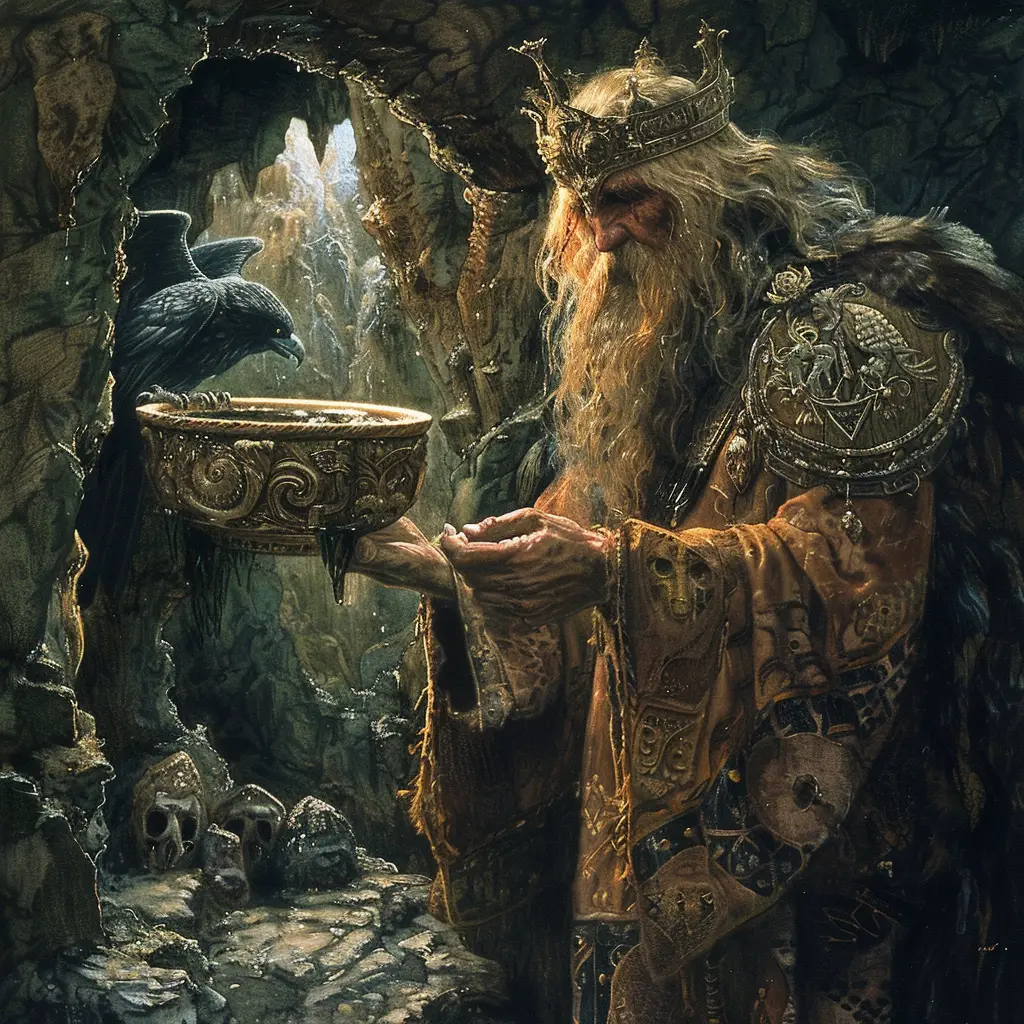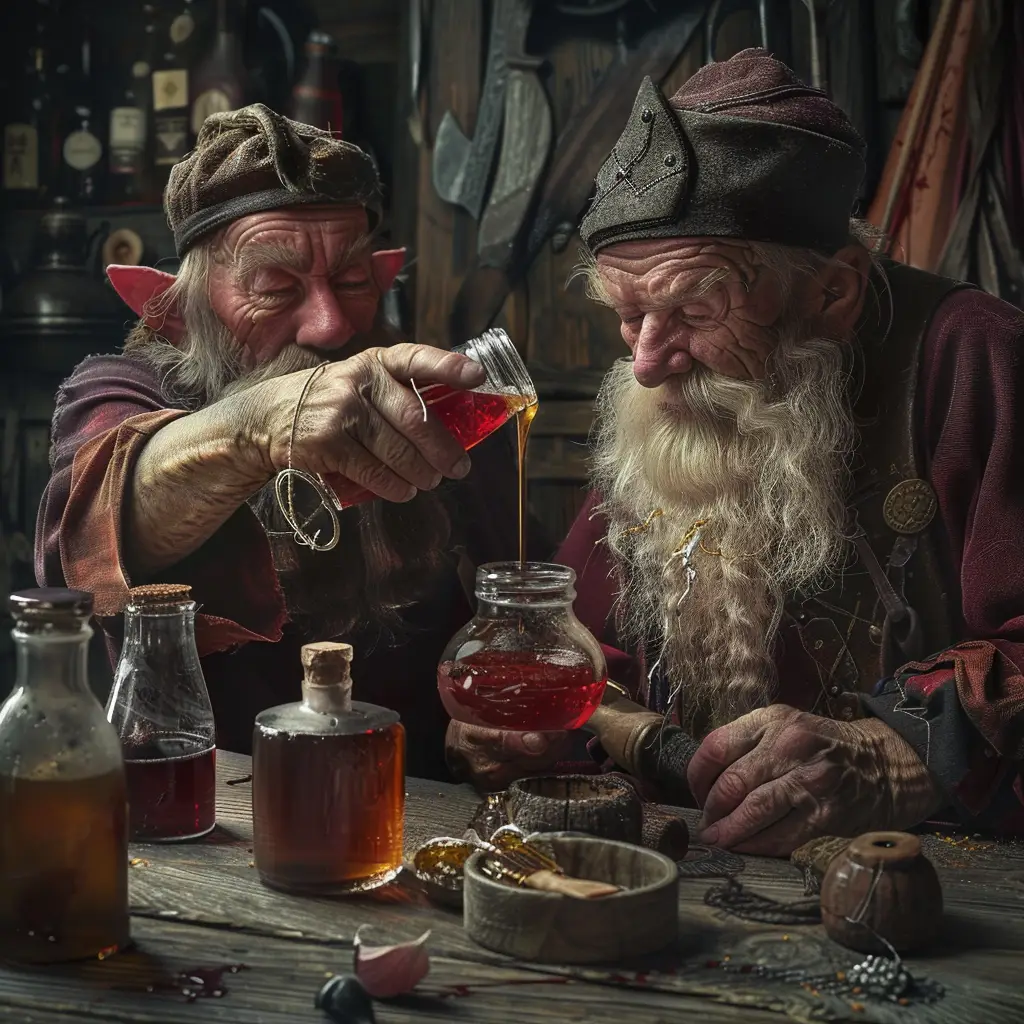The Mead of Poetry, or “Skáldskaparmjöðr” in Old Norse, is a fascinating and important part of Norse mythology.
Origin and Myth
The story of the Mead of Poetry is primarily found in the Prose Edda, written by the Icelandic scholar Snorri Sturluson. The myth explains how this magical mead was created and how it came to be associated with poetic inspiration.
Kvasir’s Creation: The mead’s origins trace back to a wise being named Kvasir, who was created from the saliva of the Aesir and Vanir gods after they made peace. Kvasir traveled the world, sharing his vast knowledge.
Murder and Transformation: Kvasir was murdered by two dwarves, Fjalar and Galar, who mixed his blood with honey to create the Mead of Poetry. This mead had the power to turn anyone who drank it into a poet or a scholar.
Giant’s Possession: The dwarves eventually gave the mead to a giant named Suttung in exchange for their lives. Suttung hid the mead in a chamber within a mountain, guarded by his daughter, Gunnlod.
Odin’s Quest: The god Odin, seeking the mead to gain wisdom and poetic skill, embarked on a cunning quest. Disguised as a worker named Bolverk, he tricked Suttung’s brother, Baugi, into helping him reach the mead.
Seduction and Theft: Odin seduced Gunnlod and spent three nights with her, during which she allowed him to drink the mead. He consumed all of it, transformed into an eagle, and flew back to Asgard, the home of the gods.
Sharing the Mead: During his escape, Odin spilled some of the mead, which fell to Earth and became available to all mortals, inspiring poets and scholars. However, the best portion was kept by the gods.
Significance
Poetic Inspiration: The Mead of Poetry symbolizes the divine source of artistic inspiration and wisdom. It reflects the Norse belief that creativity and knowledge are gifts from the gods.
Odin’s Role: Odin’s quest for the mead highlights his role as the god of wisdom, poetry, and magic. It demonstrates his cunning and willingness to go to great lengths for knowledge.
Cultural Impact: This myth underscores the value the Norse placed on poetry and storytelling, which were essential aspects of their culture and means of preserving history and lore.
Artistic and Literary References
The Mead of Poetry has inspired countless works of art and literature, both in ancient times and modern interpretations. It represents the transformative power of creativity and the idea that true artistic talent is a rare and divine gift.



